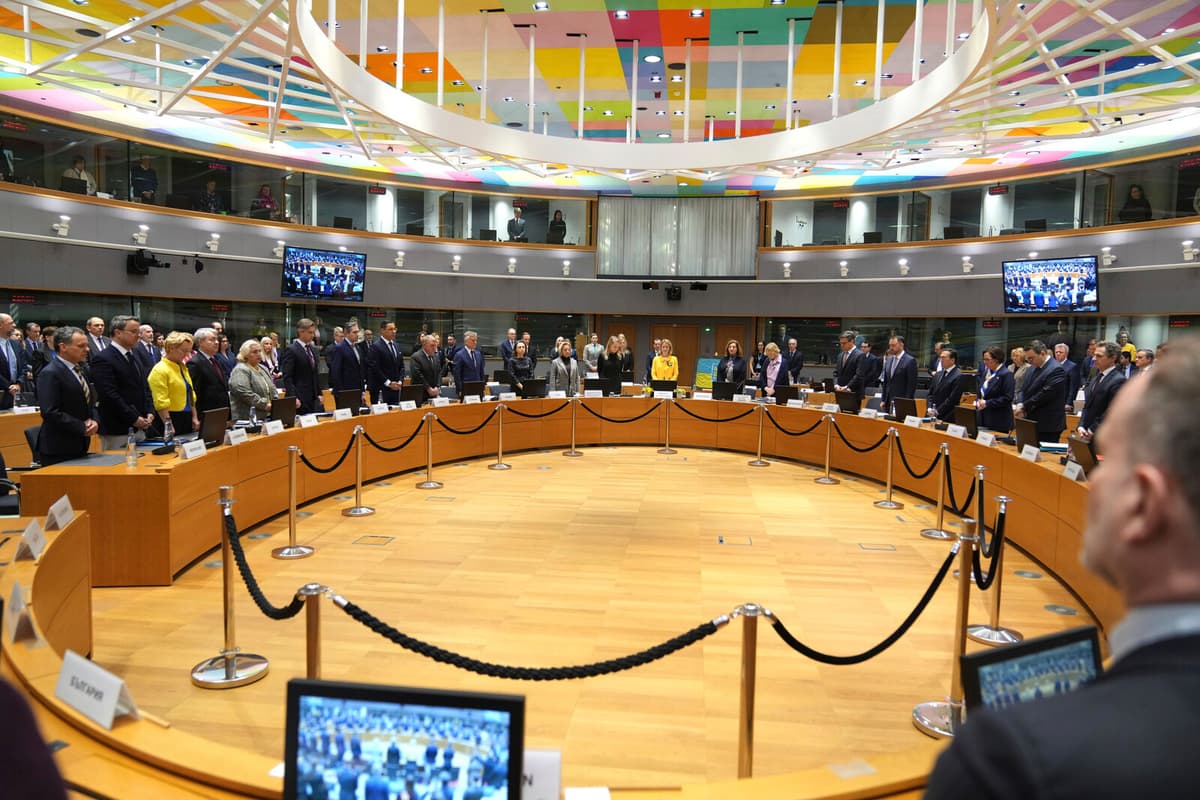Instead of coming one by one, the Nordic and Baltic participants marked their common line by meeting the press in a group at Monday's EU foreign ministers' meeting in Brussels.
Together, we are the second-largest military contributor to Ukraine. Only the USA is larger. It's time to increase now, says Denmark's Lars Løkke Rasmussen.
Sweden's Maria Malmer Stenergard (M) issues a clear challenge to other countries.
If one says that this is existential and that it's about Europe's future, then one must also dig deeper into one's pockets and cough up money to support Ukraine here and now. Not in six months, she says to TT after the meeting.
Air Raid Siren in the Hall
Monday was naturally marked by the anniversary of the renewed Russian attack three years ago. The foreign ministers held a minute of silence, which was concluded with a symbolic air raid siren, before they immediately adopted their 16th sanctions package against Russia.
More is also wanted in the short term. When the heads of state and government meet for an extraordinary summit on March 6, a continued discussion on a new support package of up to 20 billion euros from the EU is expected. The situation is acute to prevent Ukraine from being overrun in the "peace talks" that the USA and Russia have initiated.
We must put Ukraine in a position of strength so that Ukraine can say no to a bad deal, explains Foreign Minister Kaja Kallas at her press conference in Brussels.
No from Hungary?
However, getting Hungary, which is strongly skeptical of Ukraine, on board will not be easy.
It's very frustrating that Hungary repeatedly blocks various forms of support. At the same time, we have also shown since the full-scale invasion that we have been able to unite Europe for a large number of sanctions packages. But it's about being a little innovative and finding solutions to get Hungary on board as well, says Maria Malmer Stenergard.
The EU countries approved their 16th sanctions package against Russia's war in Ukraine on Monday.
Among other things, 74 new ships are included on the list of the "shadow fleet" that Russia is accused of using to circumvent previous sanctions. An additional 48 individuals and 35 companies or organizations will have their assets frozen in the EU and will be denied entry visas.
53 new companies, a third of which are outside Russia, in countries such as China, India, Kazakhstan, and Turkey, are placed among those affected by tightened export controls and restrictions.
The EU is also stopping exports to Russia of, for example, game console controllers that can be used to control drones. An import ban is introduced for Russian aluminum, while other measures are directed against more Russian banks, media companies, ports, and airports.
Source: EU Council of Ministers






